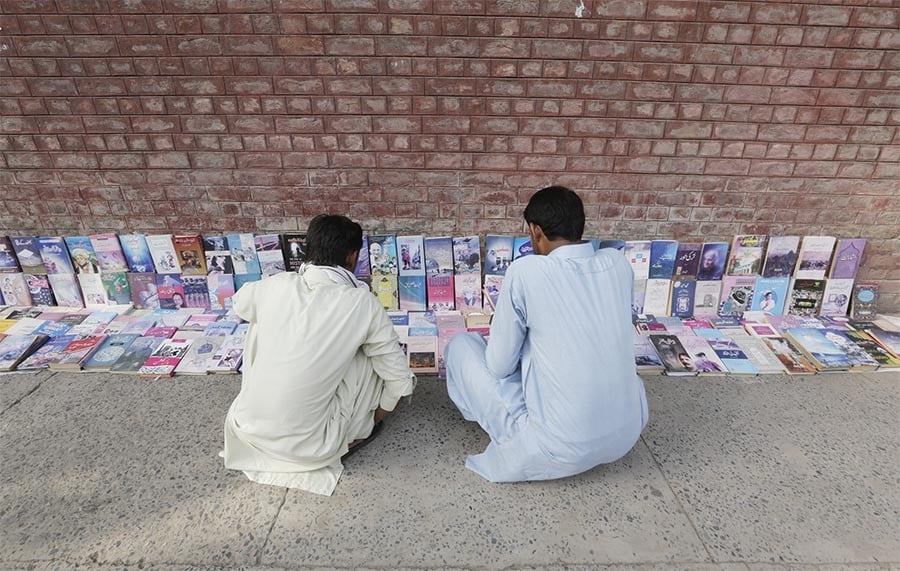
A street bookseller, Hassan Deen, knows how the world around him is changing based on what customers come looking for

The age of the internet has changed reading and buying habits of most consumers; the book trade has also changed drastically to meet the challenge. Producing and selling books is not what it used to be - books are now written, marketed and sold while staying mindful of the changing terrain. Walking through Anarkali Bazaar, however, when one spots vendors displaying books ready to be sold on dusty footpaths, the question that comes to mind is: how do these vendors do their business?
Many of them are reluctant to talk. However, an old man named Hassan Deen who has been a book vendor for more than 50 years opens up about his experience. His stall is behind the Oriental College.
"I am the pioneer of the book fair held every Sunday on the Mall," he claims. But, due to some serious health issues and problems with local administration, he had to move to the back of Oriental College.
A cursory glance shows that he keeps literary classics - Shakespeare, Virginia Woolf, Charles Dickens, a collection of old issues of Time magazine and works of some famous Urdu writers. Selling books for more than 5 decades has enabled him to see how people’s sensibilities and tastes have changed.
"In the past, people were interested in Urdu digests and progressive poetry by the likes of Faiz and Habib Jalib", he recounts.
"Today’s youth are more inclined towards reading fiction, and more specifically towards popular fiction -- Umera Ahmed’s novels in Urdu for instance. These novels are an amalgamation of romance and religion.
"Among English readers, I would say there is a greater diversity: they buy both fiction and non-fiction," he says.
"Motivational books in particular sell more than ever before", he notes.
His explanation is that while today’s youth are "considerably more literate" than their parents’ generation, they are living in a much more complex world. As neoliberalism has become the order of the day, anxiety and depression among young people. While books can be an escape, he believes, motivational books present ways to cope with the changing world.
For him, selling books is a way of channelling his passion for sharing knowledge rather than only a business.
"When I was young, I would keep old newspapers going as far back as the WWII. My father, being a grocer, though always managed to get those papers from me to wrap customers’ grocery", he recalls.
In the 1960s, Deen says, he began by selling old books for their original price.
"If people returned the books that they had bought, even in poor condition, I would not charge them anything. I would refund them", he states.
The only time he got worried about the future of the trade was when he observed that e-books were becoming popular and using the computer had become a part of people’s daily lives. But, he still drew hope from the fact that books, being a source of knowledge, would still get patronage from the upper strata of society.
"No doubt, computers and the internet have made it easy to retrieve information. But a word written on paper has always more impact on mind than the word displayed on a screen. Today’s youth are more literate, but a wide majority does not know how to engage with the context of a text properly," he says.
In his view, it is crucial that the state emphasise research-based academic programmes. Such ventures should be made more productive and go beyond cursory engagement with texts and paper filling for the sake of getting a degree.
Deen laments the apathy of governments in Pakistan towards the education sector. But he is hopeful about the future, placing his optimism in the promise of light at the end of every dark tunnel. Who knew that Deen Sahib, having set up shop on an old worn rug had a lucid analysis of society’s changing sensibilities, informed just by selling books to strangers?